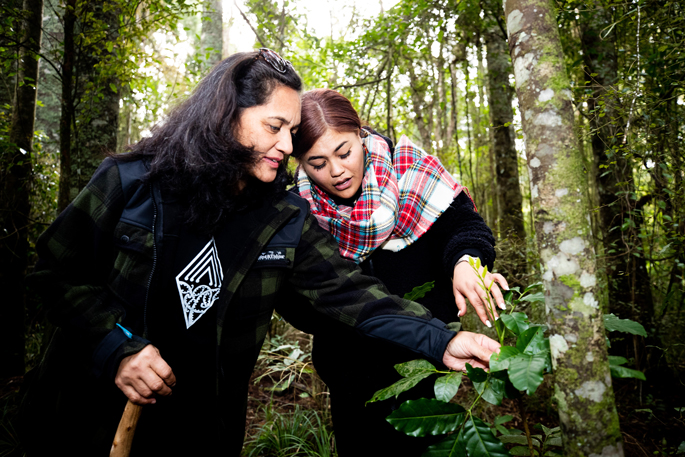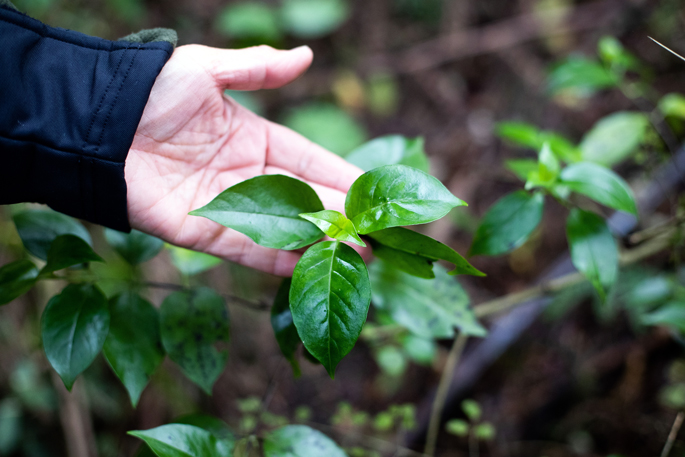Rongoā Māori expert Awhitia Mihaere (Ngāti Kahungunu) wants to share her life experiences and applied practices of rongoā.
The chairperson of the ACC Rongoā Māori Advisory panel talks about her deep roots in traditional Māori healing, which began in early childhood at the side of her grandmother.
"Rongoā Māori (traditional Māori healing) was our way of life. It was knowing how to apply her teachings to our own personal life," says Awhitia.
"Our first rongoā learning in the māra (garden) was kūmara – how to plant and how to harvest, and then to manaaki (share) with your whānau and hapū.
"We applied the same tikanga practices to our moana (ocean) and ngahere (forest). My grandmother taught me the different varieties of seaweeds and their uses.
"For example, which seaweed to apply to a bee sting or what to give for low iron count like our kina (sea urchins) or kūtai (mussels) along with pūhā (sowthistle) in a boil up."
Ahitia says her father experienced injury and disability, so growing up they treated each moment as a rongoā learning, paying attention to the application of rongoā taught to them by their mum.
That included whitiwhiti kōrero (support and advice), mirimiri (bodywork) and romiromi (cellular memory healing).

Awhitia says in the past 10 years, they have been celebrating the resurgence of rongoā being reintroduced back into the communities,
"The progression for rongoā Māori in Aotearoa with the support of ACC has shifted from when my dad had his accident to a place of returning to our mātauranga (Māori knowledge and world view) to help heal our Māori communities.
"ACC has been offering rongoā Māori as a healing option since 2020 and the response shows there is a need for this healing in our communities."
For rongoā practitioners, the 2024 ACC Rongoā Māori Conference this month is significant, says Awhitia.
She says it's the first time they have seen a government agency acknowledge rongoā in this way, as a kaupapa that brings about wellbeing for our people.
"Rongoā uplifts our wairua (spirit) and our mauri (life energy) and there certainly is an abundance of aroha (love) that is immersed in our practices.
"We believe this conference will bring a great relationship in terms of honouring Te Tiriti o Waitangi and promoting equity for tangata whenua.
"We are looking forward to growing understanding of rongoā and being able to work alongside the medical fraternity because we haven’t really been able to do that before.
The upcoming conference signifies a milestone in promoting collaboration with ACC and rongoā practitioners and their communities."

Rongoā Māori – by the numbers
- ACC data shows rongoā Māori claim volumes have doubled in the 12 months to March 2024, with 5054 additional claims using rongoā.
- And it’s not just Māori who are accessing rongoā Māori services – 59 per cent of kiritaki (clients) accessing rongoā Māori are Māori while 41 per cent are non-Māori.
- “Offering rongoā as a rehabilitation service is part of our continuing efforts to deliver equity for Māori,” says Eldon Paea, ACC Head of Māori Health Partnerships.
- As part of its commitment to growing access to and awareness of rongoā Māori across the health sector, ACC is supporting the inaugural Rongoā Māori Conference in Rotorua, 22-23 May.
- The leading regions for rongoā Māori claims under ACC since June 2020 - Waikato (3718 claims), Bay of Plenty (1152), Wellington (871), Auckland (861) and Gisborne (792).



0 comments
Leave a Comment
You must be logged in to make a comment.